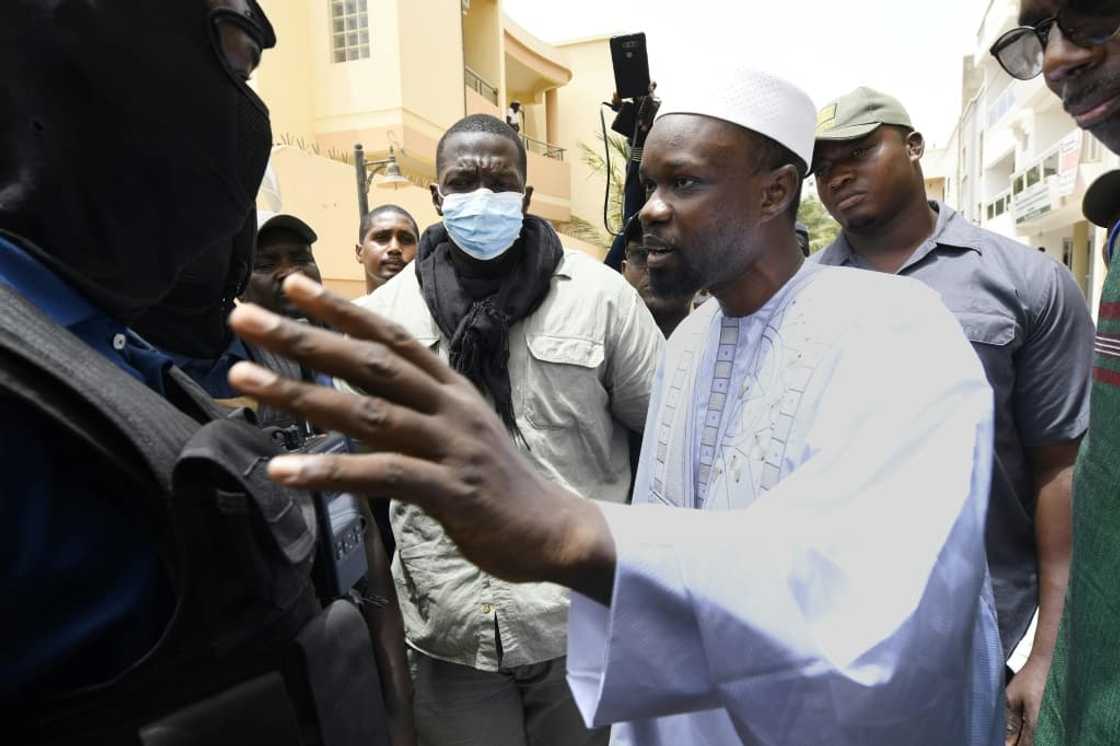Pre-vote standoff in Senegal after protest violence

Source: AFP
PAY ATTENTION: Follow Briefly News on Twitter and never miss the hottest topics! Find us at @brieflyza!
Senegal's main opposition leader was in a standoff with the government Saturday, a day after clashes left three people dead and heightened fears of worsening violence ahead of legislative elections in six weeks.
Ousmane Sonko urged President Macky Sall to release detained opposition members, failing which their supporters would come "to get these political hostages, whatever that will cost," he said on Facebook.
Senegalese are divided over who was responsible for the violence, and how to stop the spiral of violence in a country often considered a beacon of stability in west Africa.
There has been criticism of the government over its handling of the clashes in Dakar and Casamance in the south Friday.
The unrest came after youths defied a ban on gatherings to protest the invalidation of a list of opposition candidates for the July 31 elections.
The clashes left one person dead in the capital and two others in Casamance, at least two of whom were not part of the protests according to media reports.
PAY ATTENTION: Follow us on Instagram - get the most important news directly in your favourite app!
Three opposition figures, Dethie Fall, Ahmet Aidara and Mame Diarra Fame, were arrested on Friday.
Another protest leader, Guy Marius Sagna, was arrested Saturday in Casamance, according to his brother.
Authorities have so far remained silent on the extent of the damage as well as the police response.
Police blocked Ousmane Sonko and another ardent critic of the president, Dakar Mayor Barthelemy Dias, from their homes on Friday to prevent them from carrying out their plan to go to the protest despite the ban.
Dias was trapped in his home by police on Saturday, a member of his entourage told AFP on condition of anonymity.
On social media, Sonko accused Sall of being "a murderous president", citing at least a dozen people killed in riots in March 2021.
He also denounced what he called the president's "obsession" with seeking a third term in 2024 although Sall has remained vague on the issue.
Sonko, who was third in the 2019 presidential election, is running for president in 2024.
'Edge of the precipice'
The opposition alleges that the government is seeking to neuter competition by using institutions such as the Constitutional Council to thwart Sall's political opponents.
After weeks of wrangling, the council on June 3 confirmed that the national list of candidates submitted the Yewwi Askan Wi coalition for legislative elections was invalid.
The decision rules out Sonko and other opponents of Sall.
The opposition held a first peaceful protest on June 8.
It then threatened to prevent the conduct of the elections if their list was not reinstated and called for a new rally on Friday.
This time, the authorities banned it, citing the risk of unrest stoking fears of violence.
"When demonstrations are banned, we have a brutal repression that causes deaths and material damage. Ban = disorder, death, damage," tweeted Alioune Tine, a prominent human rights activist.
Bamba Fall, mayor of Medina, one of Dakar's main towns, slammed the opposition for "turning the country upside down."
Neither side has given any sign of wanting a compromise.
Maurice Soudieck Dione, a professor of political science, said that "we still have ways out of the crisis if the two camps do not become radicalised".
"In Senegal, we like to play on the edge of the precipice, but the Senegalese people have shown maturity," he said, citing two past instances of political turbulence in the country.
"In the end we voted," he told AFP.
PAY ATTENTION: check out news exactly for YOU ➡️ find "Recommended for you" block and enjoy!
Source: AFP

